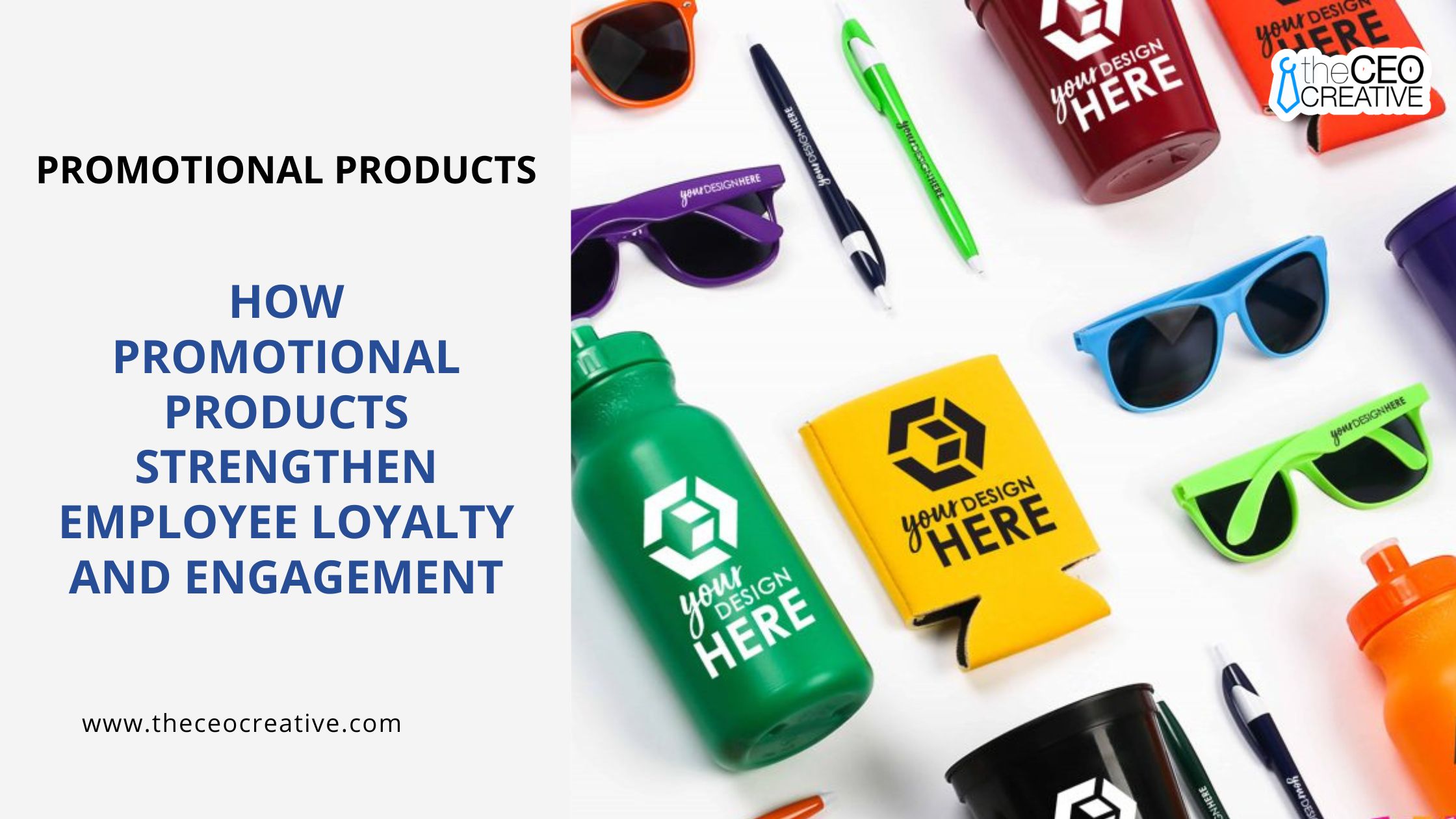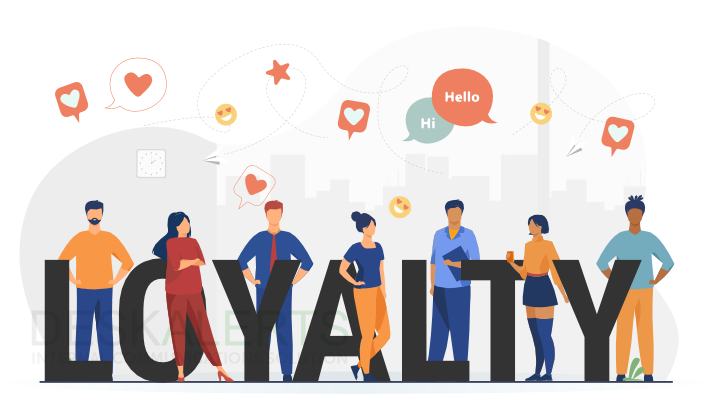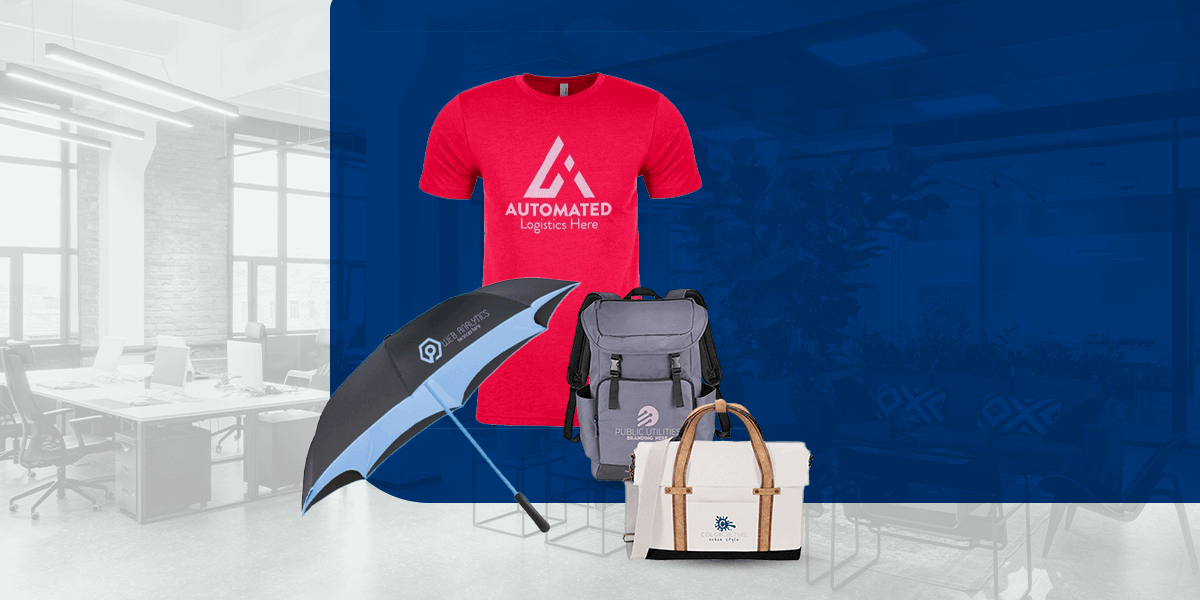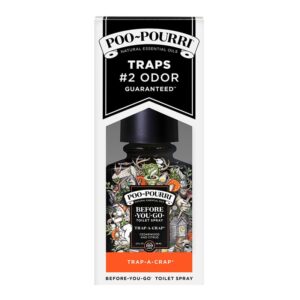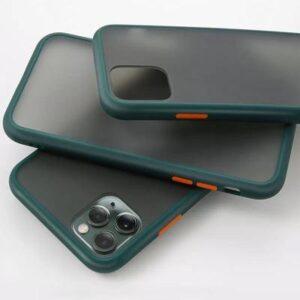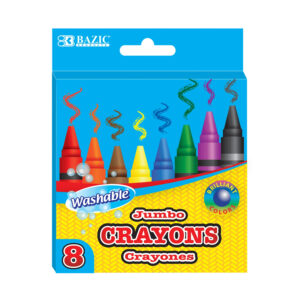Introduction
In today’s busy work environment, it’s important for companies to make employees feel like they belong and are committed to the job. One way businesses are doing this is by giving out promotional products. These items, usually with the company’s logo on them, are great not only for advertising but also for creating employee loyalty. Whether they are small gifts or bigger rewards, promotional products can improve morale, show appreciation, and create a better workplace atmosphere.
The Importance of Employee Loyalty and Engagement
In today’s busy work world, employee loyalty and engagement are not just trendy phrases. They are important ideas that can greatly impact how well a business does and how its culture is shaped. Let’s explore more about why loyalty and engagement are so crucial for any successful company.
Understanding Loyalty and Engagement
Employee loyalty means that workers are dedicated not just to their jobs, but also to the company and its aims. Loyal employees trust in the company’s purpose, follow its values, and want it to succeed. They are the foundation of successful businesses, offering stability and lowering the rate of people leaving.
On the other hand, employee engagement is about how emotionally and mentally connected workers feel to their workplace. Engaged employees don’t just show up; they actively help and bring energy, excitement, and commitment to their tasks. They are driven and put in their best work, leading to better productivity and a happier work environment.
Loyalty and engagement go hand in hand, each making the other stronger. When employees feel appreciated and connected to their job, their loyalty grows. And when they are loyal, they become more involved in their daily tasks.
The Impact on Business Performance
Employee loyalty and engagement have a big effect on how well a business does. First, they help increase productivity. Employees who are engaged are more willing to work harder, which leads to better work and more output. They also quickly find and fix problems, making operations more efficient.
Also, loyal employees usually stay with the company longer, which lowers the costs of replacing them. Hiring and training new employees can be costly and take a lot of time, so keeping a group of dedicated employees can save money. Employees who are loyal to their company often share their positive feelings outside the workplace, which helps the company look like a great place to work and attracts top talent.
A team that is committed to their work also improves customer satisfaction. Employees who are happy are more likely to offer great service, which creates good experiences for customers and helps build customer loyalty. Basically, when employees enjoy their workplace, they bring that positive feeling into their interactions with clients and customers, which directly affects how customers see the company and, in the end, the company’s success.
Challenges in Achieving High Levels of Loyalty
Even though it’s important, getting employees to be very loyal and involved isn’t easy. One big problem is when people don’t understand what’s happening or how their work helps the company. When employees feel left out or not part of the bigger picture, they might not care as much. Good communication is key so everyone knows how their job helps the company succeed.
Also, the way the workplace works matters a lot. If the workplace doesn’t treat employees well or doesn’t appreciate their hard work, it can make them unhappy and less loyal. When managers don’t seem to care about employees’ efforts or don’t give them chances to grow, it can really hurt loyalty.
Managing work and personal life is a challenge for employees. If workplaces don’t help with this balance, it can cause burnout, which lowers loyalty and engagement. To solve these issues, leaders need to make plans to build a workplace where trust, respect, and good communication are encouraged.
Role of Promotional Products in Enhancing Engagement
A good way to increase employee loyalty and involvement is by using promotional products. These items, usually given as gifts or rewards at work, can create a strong, positive impression and significantly improve workplace morale.
Creating a Sense of Belonging
Promotional items, like branded office supplies, clothing, or tech gadgets, can help employees feel connected to their company. When team members get items with the company logo, it shows they are part of a united group. This small gesture reminds them that they are part of something important. These items act as physical signs of the company’s gratitude for their work.
Building a strong sense of belonging is very important, as it can increase employee satisfaction and loyalty. Employees who feel they belong are more likely to be involved in their work and work well with others. This sense of community not only boosts engagement but also improves communication and teamwork.
Improving Employee Recognition
Acknowledgment is a key factor in motivating employees at work. When people feel recognized and valued for their efforts, they are more likely to stay involved and work hard to keep up their good performance. Giving out promotional items can be a great way to show appreciation for employees’ achievements, important events, or their contributions.
Small actions, such as personalized presents or awards for excellent work, can greatly improve morale. Items like special certificates, branded products, or unique gifts can act as physical signs of appreciation. When employees receive these rewards, it shows them that their hard work is noticed, which encourages them to stay committed and loyal to the company.
Besides individual success, acknowledging team achievements can also build a sense of friendship and pride. When teams receive promotional items for their combined efforts, it deepens their bond with the company and with each other, which boosts their involvement even more.
Facilitating Communication and Interaction
Promotional products can help employees communicate and interact better. Items like team-building activities, group games, or event giveaways can encourage employees to connect more, both at work and outside of it.
These items can help start conversations in meetings or shared spaces, making it easier for employees to get to know each other. By promoting interaction and communication, promotional products help create a more united and involved team.
Also, promotional items can be used to support company events, competitions, or challenges that need teamwork and problem-solving. These events are perfect chances for employees to bond personally while showing their dedication to the company’s goals and values.
Using a range of promotional items thoughtfully and strategically can improve the workplace environment, making it more inclusive, lively, and engaging. Whether it’s welcoming a new employee with a branded gift, celebrating a milestone anniversary, or boosting team morale during company events, promotional products can strengthen positive relationships and create a culture of loyalty and engagement.
Types of Promotional Products that Promote Loyalty
In today’s fast-paced business environment, keeping employees motivated and committed is like tending to a flourishing garden. Think of the promotional items you select as the seeds you plant; the more effort and attention you put into choosing them, the more vibrant the results of employee engagement and loyalty will be. Let’s look at various types of promotional products that can significantly enhance a sense of belonging and appreciation within your team.
Customized Apparel and Accessories
Who doesn’t enjoy getting a fashionable piece of clothing or an accessory that not only improves their style but also makes them feel like they belong to a unique group? Personalized clothing and accessories act as moving advertisements for your brand. But more importantly, they create a feeling of pride and togetherness among employees.
– Branded Clothing: A well-designed T-shirt, hoodie, or even a cap with your company logo can greatly boost morale. These items become everyday essentials for employees and represent a positive connection with their workplace.
– Useful Accessories: Consider practical items like branded backpacks, fashionable tote bags, or comfortable socks. Employees value these thoughtful gifts, which are both functional and help promote the brand.
– Personalized Gifts: Including employees’ names or offering customization options on clothing can make these gifts feel even more special and personal. Customization shows that the company appreciates each team member as an individual.
Technology and Gadgets
In today’s tech-focused world, using technology in promotional gifts is a great way to impress your team. Tech gadgets are not only stylish but also very useful for getting work done and making life easier.
– Wireless Earbuds: These small but amazing devices are popular because they are both practical and stylish. Employees can use them for work calls, focused work sessions, or just to relax with their favorite music.
– Portable Chargers: As we use more devices, it’s important to stay charged while on the move. Portable chargers are a thoughtful gift that shows you understand employees’ needs outside of work.
– Smart Home Gadgets: Gifts like smart speakers or smart lighting, which make daily life simpler, show that your company cares about employees’ time outside of work.
Wellness and Lifestyle Products
A comprehensive approach to employee engagement highlights the significance of health and well-being. Promotional items that focus on wellness can create a supportive and caring work environment.
– Fitness Gear: Encourage a healthy lifestyle with branded yoga mats, water bottles, or fitness trackers. These items promote an active, healthy lifestyle and show that the company cares about employee well-being.
– Mindfulness Tools: Consider giving items like stress-relief balls, aroma diffusers, or journals. These products support mental health and show understanding of employees’ emotional and psychological needs.
– Healthy Snack Packs: Offering a variety of nutritious snacks for employees can show a commitment to promoting healthy habits and work-life balance.
Choosing the right promotional items can help your company create stronger bonds with employees. This can foster a real sense of loyalty and involvement as they happily use these items in their everyday lives. The next step is to use these items in well-planned strategies to get the most out of them.
Strategies for Implementing Effective Promotional Campaigns
Choosing the right promotional items is important, but it’s only part of the solution. To really build strong loyalty and engagement among employees, companies need to use these gifts in a way that matches their values and goals. Here’s how to move from selecting the right products to running effective promotional campaigns.
Aligning Products with Company Culture
Think of your company culture as the core of your organization. It influences not only how you work but also how you treat and interact with your employees.
– Show Your Values: Your promotional items should represent the values your company believes in. If sustainability is important to you, choose eco-friendly products like reusable coffee cups or sustainable tech accessories.
– Connect with Events: Match your promotions with company events, milestones, or special projects. If you’re starting a wellness program, include health-related promotional items. If you’re celebrating a tech conference, give gadgets that excite your team.
– Build Team Spirit: Products that emphasize teamwork—like puzzle games or team-building kits—help employees feel they are part of something bigger.
Personalizing Incentives to Employee Preferences
A one-size-fits-all method often doesn’t work well in today’s varied workplaces. Letting employees have a say in their rewards not only makes them feel more in control but also shows you care about their likes and dislikes.
– Ask and Listen: Before starting your reward program, ask your employees what they really want by doing surveys. This helps you give them gifts they will truly appreciate and avoids wasting money on things they might not like.
– Offer Options: When you can, give employees a few different things to choose from. This not only makes them happier but also ensures the gifts they get are both liked and useful.
– Celebrate Achievements: Customize rewards to match personal accomplishments or work anniversaries. Giving thoughtful gifts that recognize their individual efforts can boost their spirits and make them more involved.
Measuring the Impact of Promotional Initiatives
It’s important to assess how well your promotional activities are working so you can keep improving and show their worth to your team and higher-ups.
– Employee Feedback: Ask employees how they feel about the promotional items they get. Are they helpful? Do they match their interests?
– Engagement Levels: Look at how engagement changes before and after giving out promotional items. If you can, check how many people join programs linked to these items.
– Return on Investment: See how long employees stay after a promotional campaign. Are they more loyal and happy? Measuring these things gives clear proof of the campaign’s success.
By using these methods, you can make sure that promotional items are more than just small gifts—they become important symbols of thanks that help improve employee involvement and build long-lasting loyalty. Keep in mind, when employees feel respected and appreciated, their dedication to the company grows, forming a beneficial partnership for everyone involved.
Conclusion
In today’s competitive job market, using promotional items is a good way to increase employee loyalty and involvement. When employees receive thoughtful gifts, they feel more motivated and dedicated to their jobs. These actions help create a positive work environment, which boosts productivity and happiness.
– Boost Engagement: Simple, meaningful gifts can spark excitement and dedication.
– Strengthen Loyalty: Employees are more likely to stay when they feel recognized.
Including promotional products in your overall engagement plan benefits both the company and its employees.

